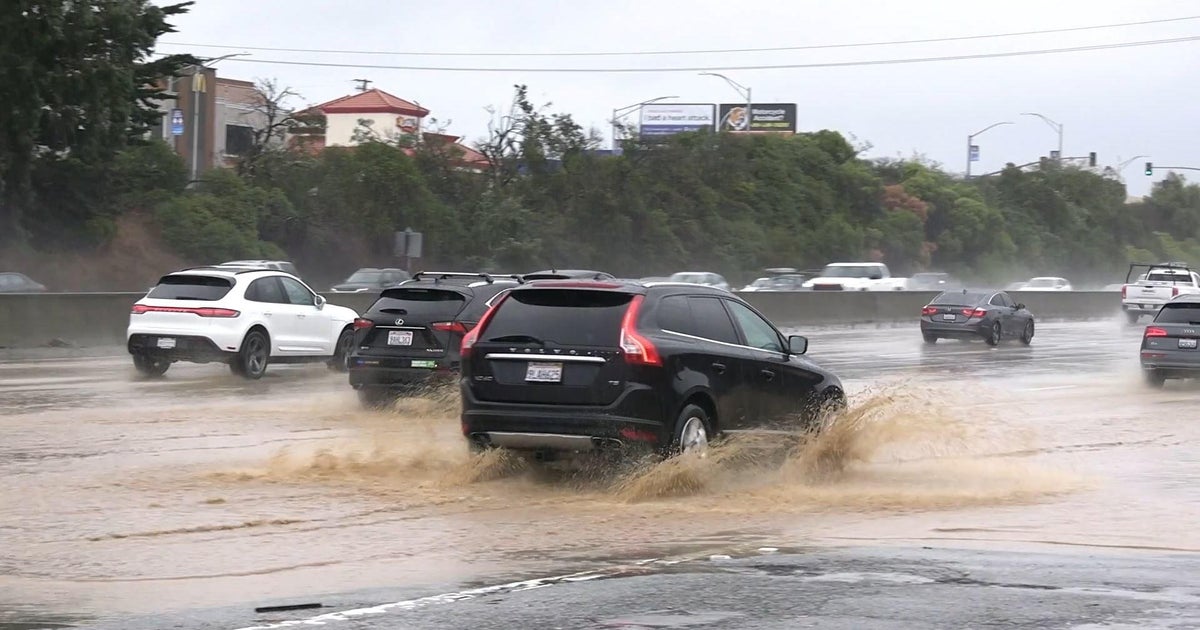COVID Bay Area Exodus: Rents Continue To Tumble Across Bay Area, South Bay Sees 20% Drop
SAN JOSE (CBS SF) -- As COVID cases climb and the exodus from the Bay Area continues, rents are falling with some of the biggest declines in the South Bay.
The continued drop since April is due to the departure of remote working techies, creating opportunity for steep discounts near Silicon Valley tech giants.
Keller Williams real estate broker Myron Von Raesfeld showed KPIX 5 a newly renovated unit at 1400 White Drive in Santa Clara, just off El Camino Real that became vacant during the pandemic.
"We used to - a place like this we would when it first goes on the market place, we'd have 15, 20 calls in the first day or two," said Von Raesfeld.
If it were available in the same condition last year at this time, it would have rented for about $2,150 within 2 weeks of hitting the market.
It's been sitting empty for 4 months. The rent now - $1,900 and the first month is free.
"It's the uncertainty," he said. "In the '07, '08 it was a financial deal. We knew it was just financial, this is more than just financial. This is financial, but it's health, it's well-being."
A new report by Zumper found that in the Bay Area, Mountain View saw the largest decline in rent since this time last year at 23.8%.
In San Francisco and Menlo Park rents dropped 22.6% while in Santa Clara they have dropped 20.7%.
"I do hear my friends who want to actually move out from here, and buy or rent a bigger place," said Baljeet Kundo of San Jose.
All considering, the Bay Area is still home to some of the most expensive cities in the U.S.
San Francisco is still the most expensive city to rent a one-bedroom, followed by Mountain View and Cupertino, according to Zumper.
Still moving vans have become a common sight during the retreat of remote workers from San Francisco. Among those who has left the city is William Hauser, who originally came to the Bay Area to pursue his digital dreams.
Hauser talked with KPIX 5 in late August as he loaded a moving van ready to begin his exodus to his childhood hometown in Ohio.
"Honestly, I started being a software engineer, I got into computers, because it's convenient to be able to work remotely," he said. "Now that everyone has been working remote, and policies aren't cemented at least until next year, there's no reason to stay here when I could go back to family and work remotely there."
Many like, CEO of San Francisco-based kWh Analytics Richard Matsui, have relocated to Hawaii.
He grew up in Honolulu. After high school, he left for the U.S. mainland and Asia for educational and career opportunities and never expected to be able to leave the Bay Area and still be able to run the company.
Then the pandemic shut down child care options in San Francisco for his baby born in January. He and his wife planned to come to Honolulu for a month so that his mother could help with the baby. A month turned into two and then six.
"If there's an opportunity now to take mainland salaries and our mainland jobs and to execute them well from Hawaii, I do think that Hawaii has a once-in-a-lifetime opportunity to diversify the economy and ... take advantage of the fact that our core strength in Hawaii is a tremendously wonderful place to live and to raise kids," he said.



